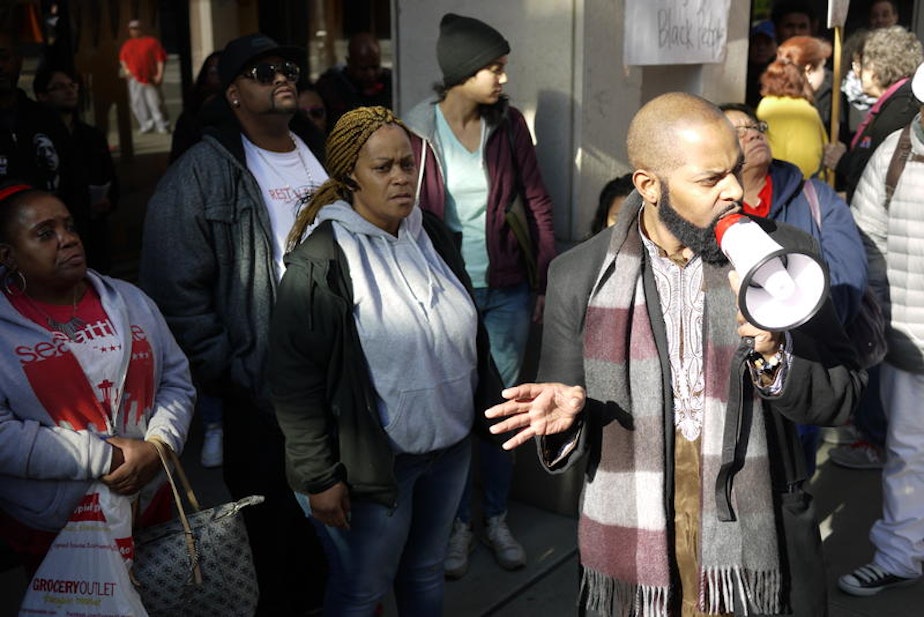Should it be easier to prosecute police officers who use deadly force? Voters to decide

Voters could change Washington's laws about police deadly force this November.
In Washington state, it's effectively impossible to charge police with a crime after a wrongful shooting.
But on Tuesday, the Washington State Supreme Court ruled to send a piece of legislation called Initiative 940 to voters. This initiative would make it easier to prosecute police officers who use deadly force and would require police to take mental health and de-escalation training.
A motion challenged that decision on Wednesday, but today the ruling was upheld. This means that this November, Washington will vote on whether to change its deadly force law.
The initiative is backed by De-Escalate Washington and the families of police shooting victims Che Taylor, Charleena Lyles, Jackie Salyers, Tommy Le, and others.
But I-940's path to the ballot was not a typical one. Initiative sponsors — and some law enforcement — were not hoping for Tuesday’s court ruling. They had already worked together on what was hailed as an historic compromise version of I-940, and wanted the Supreme Court to approve the compromise instead of sending the original initiative to voters.
The court ruling disappointed the Washington Association of Sheriffs and Police Chiefs.
"We've created better language that has a simpler and more understandable deadly force definition," the association's executive director, Steve Strachan, said." It clarifies the requirement to provide first aid if law enforcement's involved. It even included protections for law enforcement if they’re acquitted or found not guilty in a prosecution."
That ‘simpler’ language was endorsed by the initiative’s sponsor, De-Escalate Washington, and approved by the state legislature in a substitute bill for I-940, called Engrossed Substitute House Bill 3003. But lower courts overturned the bill, saying lawmakers didn't follow procedure during their vote.
Now I-940 in its original form will now be on the November ballot.
If approved, the initiative would take away the state’s malice law. Under that controversial law, police can only be criminally prosecuted for using deadly force if it's shown they acted with malice. Instead of using malice as a metric for charging, the new initiative would ask whether a reasonable officer would have done the same thing.
Because of the Supreme Court ruling, the compromise coalition is now split. But both sides expressed hope of working together in the future.
Strachan says his association wants people to vote against the measure.
"We understand what [De-Escalate Washington is] trying to accomplish, and we think some of these goals are admirable, but you're not going to get there with some of this language," Strachan said.
De-Escalate Washington said in a statement that the organization was “disappointed that the Court ruled this way." Nevertheless, it's supporting I-940 at the ballot.
"We laid the foundation for some really good relationships and we have the understanding with some law enforcement still, even with this ruling, that we need to work together to get the reforms we all want," I-940 campaign manager Heather Villanueva said.
"The first step is passing I-940 at the ballot," Villanueva added. "We're excited to do that and we hope that our law enforcement friends will continue to want to work with us in the future."





